



18-Feb-24

 Capable of building native looking apps, Ionic framework has gained
popularity in the recent past and results are overwhelming when worked
in combination with AngularJS. Developers have preferred it for cross-platform app development
particularly due to its extensive list of features, predefined elements
and of course, a large community of developers who are always ready to
help you.
Capable of building native looking apps, Ionic framework has gained
popularity in the recent past and results are overwhelming when worked
in combination with AngularJS. Developers have preferred it for cross-platform app development
particularly due to its extensive list of features, predefined elements
and of course, a large community of developers who are always ready to
help you.
 Topping
our list of hybrid app development frameworks 2020 is React Native. It
enables developers to build cross platform apps with minimal effort that
grant a native-like experience to the end-users. There is a vast
community of developers to assist you in case you come to a state called
deadlock. Although the framework is not advised for beginners to try
their hands on, the huge community encourages them to dive in and
explore.
Topping
our list of hybrid app development frameworks 2020 is React Native. It
enables developers to build cross platform apps with minimal effort that
grant a native-like experience to the end-users. There is a vast
community of developers to assist you in case you come to a state called
deadlock. Although the framework is not advised for beginners to try
their hands on, the huge community encourages them to dive in and
explore.
Read also: Why Consider React Native for Hybrid App Development?
 Designed
to support various languages in the backend, Flutter has been designed
to work across platforms, without replacing Java, Swift and Objective
C. Hot reload feature, CLI and VI editors, allowing nesting and
assembling widgets to build UI’s, can implement sliders, buttons, dialog
boxes, switches, loading spinners, tab bars without relying on OEM
widgets and DOM web views.
Designed
to support various languages in the backend, Flutter has been designed
to work across platforms, without replacing Java, Swift and Objective
C. Hot reload feature, CLI and VI editors, allowing nesting and
assembling widgets to build UI’s, can implement sliders, buttons, dialog
boxes, switches, loading spinners, tab bars without relying on OEM
widgets and DOM web views.
Read also: Flutter vs. React Native – A Growing Divergence of Opinion
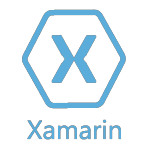 Founded in 2011 and owned by Microsoft, Xamarin is one of the hottest tools for building cross-platform apps. Developers
can leverage the same code for different operating systems including
Windows, Android, iOS, MacOS and more. The apps built using this mobile
framework offer native experience and are aesthetically-sound. Its
ability to reuse code, tools and functions make the process quick that
helps in saving a significant amount of time.
Founded in 2011 and owned by Microsoft, Xamarin is one of the hottest tools for building cross-platform apps. Developers
can leverage the same code for different operating systems including
Windows, Android, iOS, MacOS and more. The apps built using this mobile
framework offer native experience and are aesthetically-sound. Its
ability to reuse code, tools and functions make the process quick that
helps in saving a significant amount of time.
 No
matter what, you cannot rule out this exceptional tool for hybrid app
development from the list. It enables developers to use the same code
for different platforms and use their existing website development
knowledge to quickly build apps that are supported by multiple mobile
operating systems. Knowledge of HTML, CSS, and JavaScript is enough to
get started with PhoneGap app development. So, what are you waiting for?Get on with this tool and stun the world with your outstanding applications.
No
matter what, you cannot rule out this exceptional tool for hybrid app
development from the list. It enables developers to use the same code
for different platforms and use their existing website development
knowledge to quickly build apps that are supported by multiple mobile
operating systems. Knowledge of HTML, CSS, and JavaScript is enough to
get started with PhoneGap app development. So, what are you waiting for?Get on with this tool and stun the world with your outstanding applications.
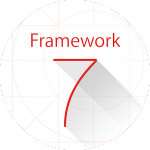 It
is a full features HTML Framework for designing iOS and Android apps.
Framework 7 CLI is an extremely powerful tool and the most recommended
way to start Framework 7 app development.
It
is a full features HTML Framework for designing iOS and Android apps.
Framework 7 CLI is an extremely powerful tool and the most recommended
way to start Framework 7 app development.
It allows to create projects with different variants to choose: Framework: Framework 7 Core, Framework 7 – Vue, Framework 7 – React; Target Platform: web app, PWA or Cordova app; Starter Template: Single Views, Tabs, Split View; Custom Color Theme; Generate required icons and splash screen.
 It
is an open-source mobile app framework licensed to use it for free
under MIT. Developers are required to make use of the Angular framework
in combination with Bootstrap to build amazing mobile app experiences.
However, there is no dependency on jQuery or any other Bootstrap
libraries. Plus, there are several UI components like scrollable areas,
navbars, switches, overlays and more that developers can use to build
seamless mobile applications. Users will be treated with a smooth,
intuitive and attractive user interface.
It
is an open-source mobile app framework licensed to use it for free
under MIT. Developers are required to make use of the Angular framework
in combination with Bootstrap to build amazing mobile app experiences.
However, there is no dependency on jQuery or any other Bootstrap
libraries. Plus, there are several UI components like scrollable areas,
navbars, switches, overlays and more that developers can use to build
seamless mobile applications. Users will be treated with a smooth,
intuitive and attractive user interface.
 It
is an open-source hybrid mobile app framework, relatively new, but
good enough to compete against the likes of some well-established names
above in this list. It features a large collection of ready to use
components. Developers are enabled to write apps in HTML5 and JavaScript
and combine the same with PhoneGap or Cordova to build a fully-featured
app. It is free, easy-to-use, flexible and has semantic markup
components for developers to get the benefits.
It
is an open-source hybrid mobile app framework, relatively new, but
good enough to compete against the likes of some well-established names
above in this list. It features a large collection of ready to use
components. Developers are enabled to write apps in HTML5 and JavaScript
and combine the same with PhoneGap or Cordova to build a fully-featured
app. It is free, easy-to-use, flexible and has semantic markup
components for developers to get the benefits.
 Corona
SDK is a Cross-Platform Mobile App Development for Enterprises,
Education and 2D Games that is 4x faster. It utilizes Lua as a
scripting language in real-time testing.
Corona
SDK is a Cross-Platform Mobile App Development for Enterprises,
Education and 2D Games that is 4x faster. It utilizes Lua as a
scripting language in real-time testing.
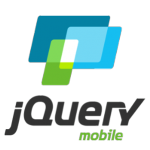 It
is an HTML based, touch optimized, JavaScript library used to make
responsive websites that are accessible on all smartphones. It makes use
of features of both jQuery and jQueryUI to provide API features for
mobile web applications.
It
is an HTML based, touch optimized, JavaScript library used to make
responsive websites that are accessible on all smartphones. It makes use
of features of both jQuery and jQueryUI to provide API features for
mobile web applications.
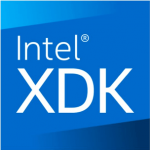 Intel
XDK is simplifying workflow and enables developers to easily design,
develop and deploy HTML5 websites and applications across multiple
websites. Besides HTML5, JS and CSS, Intel XDK can help in creating,
editing and simulating apps from an integrated development environment,
export to Adobe PhoneGap or Cordova CLI for compilation into native code
app.
Intel
XDK is simplifying workflow and enables developers to easily design,
develop and deploy HTML5 websites and applications across multiple
websites. Besides HTML5, JS and CSS, Intel XDK can help in creating,
editing and simulating apps from an integrated development environment,
export to Adobe PhoneGap or Cordova CLI for compilation into native code
app.
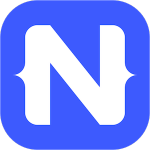 NativeScript
is how you build cross-platform, native iOS and Android apps without
web views. Use Angular, typescript modern JavaScript to get truly native
UI and performance when you share skills and code with the web. It
gives 100% access to native API’s via JavaScript and reuse of packages
from NPM, cocoaPods, and Gradle. Open source and backed by Telerik.
NativeScript
is how you build cross-platform, native iOS and Android apps without
web views. Use Angular, typescript modern JavaScript to get truly native
UI and performance when you share skills and code with the web. It
gives 100% access to native API’s via JavaScript and reuse of packages
from NPM, cocoaPods, and Gradle. Open source and backed by Telerik.
 It
is a platform for developing mobile, tablet and desktop applications
using web technologies. It lets you create iPhone, Android and iPad apps
using JavaScript. Titanium Studio, Android XDK, Xcode (Mac) are the
building blogs with JS by its side to create amazing mobile apps with
Appcelerator Titanium or Appcelerator Mobile.
It
is a platform for developing mobile, tablet and desktop applications
using web technologies. It lets you create iPhone, Android and iPad apps
using JavaScript. Titanium Studio, Android XDK, Xcode (Mac) are the
building blogs with JS by its side to create amazing mobile apps with
Appcelerator Titanium or Appcelerator Mobile.
 Build
fast web apps with Sencha Java and Sencha JavaScript frameworks. It
comes along with 115+ High-Performance UI Components that quickly
integrate with React and Angular to create customizable, end-to-end
solutions that look great and involve less incremental effort.
Build
fast web apps with Sencha Java and Sencha JavaScript frameworks. It
comes along with 115+ High-Performance UI Components that quickly
integrate with React and Angular to create customizable, end-to-end
solutions that look great and involve less incremental effort.
 Kendo
UI is an open-source version of Telerik Kendo UI, which is a
comprehensive framework for building modern web and modern apps with
HTML5 and JavaScript. It comes with 40+ widgets and framework features,
these widgets can easily be themed and styled via CSS, It comes with a
templating library that performs faster than jQuery Templates, optimized
animations leveraging CSS3 hardware acceleration and cutting-edge UI
virtualization.
Kendo
UI is an open-source version of Telerik Kendo UI, which is a
comprehensive framework for building modern web and modern apps with
HTML5 and JavaScript. It comes with 40+ widgets and framework features,
these widgets can easily be themed and styled via CSS, It comes with a
templating library that performs faster than jQuery Templates, optimized
animations leveraging CSS3 hardware acceleration and cutting-edge UI
virtualization.
 This
tool is meant for those who do not wish to learn a programming language
in order to create a mobile application. Mobincube allows internet
users to create compelling mobile apps for free. With flexibility,
functionality, and customizability – Mobincube helps best mobile
applications, compatible with any mobile and that can be successful
across locations. It also ensures publishing apps across the Apple App
Store, Microsoft’s Phone Store, and Google Play, etc.
This
tool is meant for those who do not wish to learn a programming language
in order to create a mobile application. Mobincube allows internet
users to create compelling mobile apps for free. With flexibility,
functionality, and customizability – Mobincube helps best mobile
applications, compatible with any mobile and that can be successful
across locations. It also ensures publishing apps across the Apple App
Store, Microsoft’s Phone Store, and Google Play, etc.
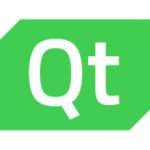 QT
is a cross-platform mobile app development framework that can be used
to write applications once and deploy them across desktop, mobile and
embedded operating systems. This removed redundancy. QT is partly C++
and partly native code. QT UI APIs wrap native UI components
QT
is a cross-platform mobile app development framework that can be used
to write applications once and deploy them across desktop, mobile and
embedded operating systems. This removed redundancy. QT is partly C++
and partly native code. QT UI APIs wrap native UI components
© Copyright 2025, All right reserved by Smartwebin